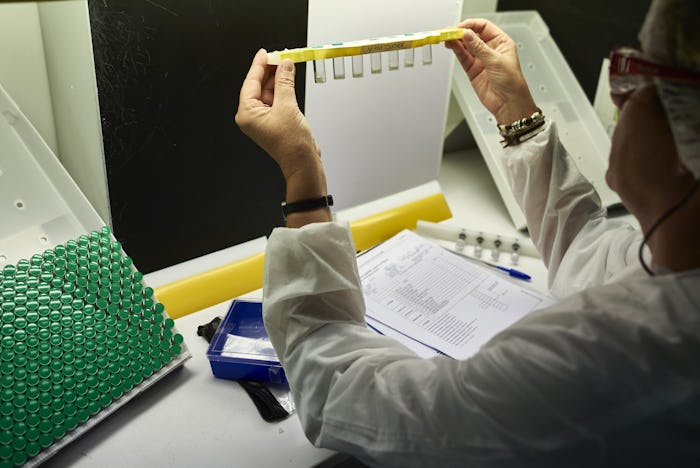Life

UNICEF Scores Vaccine Deal That Would Avert Millions Of Childhood Deaths Globally
If you're feeling a little despondent about the flood of election headlines in your news feeds, here is some very, very good news. On Wednesday, UNICEF announced a vaccine deal with six suppliers to get vaccines at a lower cost, which means millions of childhood deaths may be averted globally. The vaccines protect against five diseases: diphtheria, tetanus, pertussis, hepatitis B, and Haemophilus influenza type b, known as Hib (a bacteria that causes meningitis and pneumonia). UNICEF will be paying half of the price they used to pay for them. Half is a huge deal — it opens up so many other resources for other work the organization does and means the organization can expand its outreach with these particular vaccines.
Big pharma and a non-profit are getting along, who would have thought? It wasn't easy, obviously. The six suppliers are Biology E, Jenssen, LG Life Sciences, Panacea Biotec Ltd, Serum Institute of India, and Shantha Biotechs and this deal has been 16 years in the making. Yes, you read that right, almost two decades to provide vaccines for underserved children all over the world. The new deal means that UNICEF is getting the vaccine for an average $.85 a dose. That means so many more children all over the world will be vaccinated and healthy. Who can be mad at that?
UNICEF estimates that the supply, 450 millions doses of the pentavalent vaccine sent to 80 countries between 2017 and 2020, could potentially prevent some 5.7 million deaths a year, according to a press briefing statement Shanelle Hall, director of UNICEF's supply and procurement division. It's sort of amazing.
After 2020, UNICEF predicts that the cost will be even lower to provide the vaccine as countries' budgets evolve to include them, because donors and governments who finance the vaccine will be saving over $366 million with this new deal. Between the cost efficiency and the lives saved, governments are going to be pressured to include the vaccine in their budgets, according to Hall.
The pentavalent vaccine has previously come under scrutiny in some countries, like India, which stopped giving pentavalent vaccines because of some "sudden deaths" believed to be connected to the routine immunization. The World Health Organization also removed certain batches of the pentavalent vaccine from its recommendations in 2011 because it caused some illnesses. Unfortunately, not vaccinating definitely causes more troubles: Approximately 1.5 million children under the age of 5 die every year due to illnesses that this dose would normally protect against.
Suppliers and UNICEF have done their due diligence and research to make sure the best of the pentavalent vaccine reaches those in need. This deal is a big win all around for children and families all over the world.